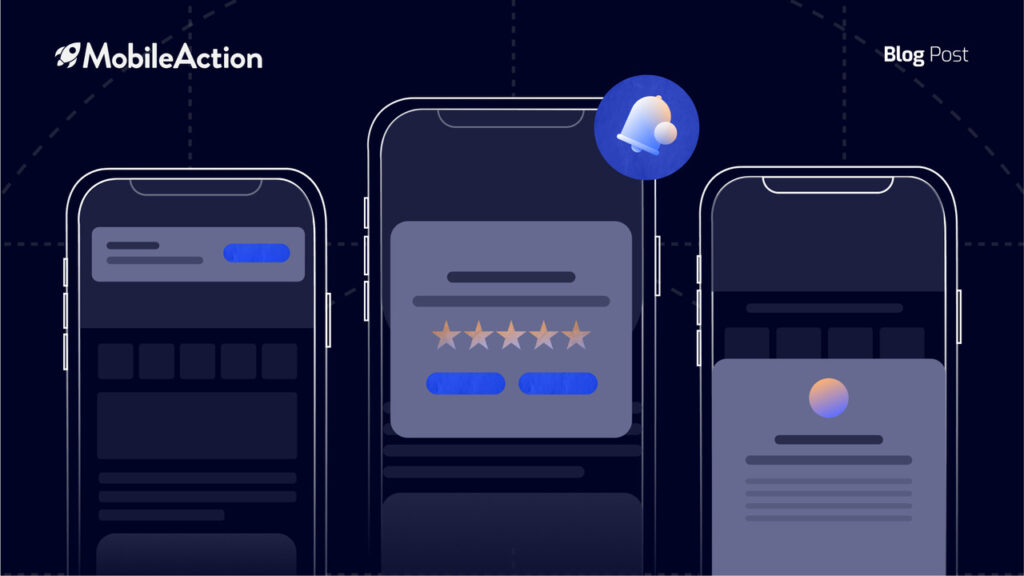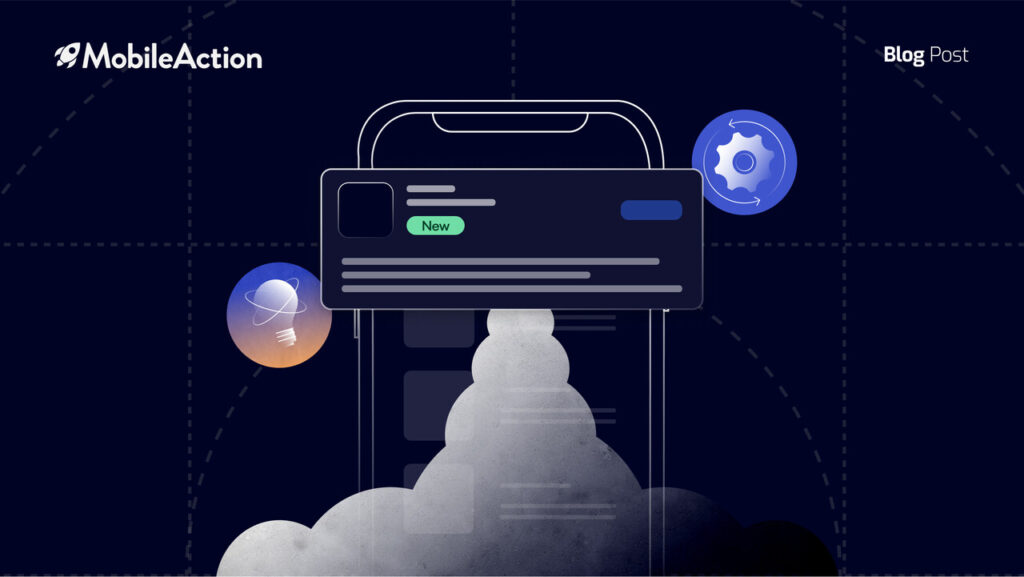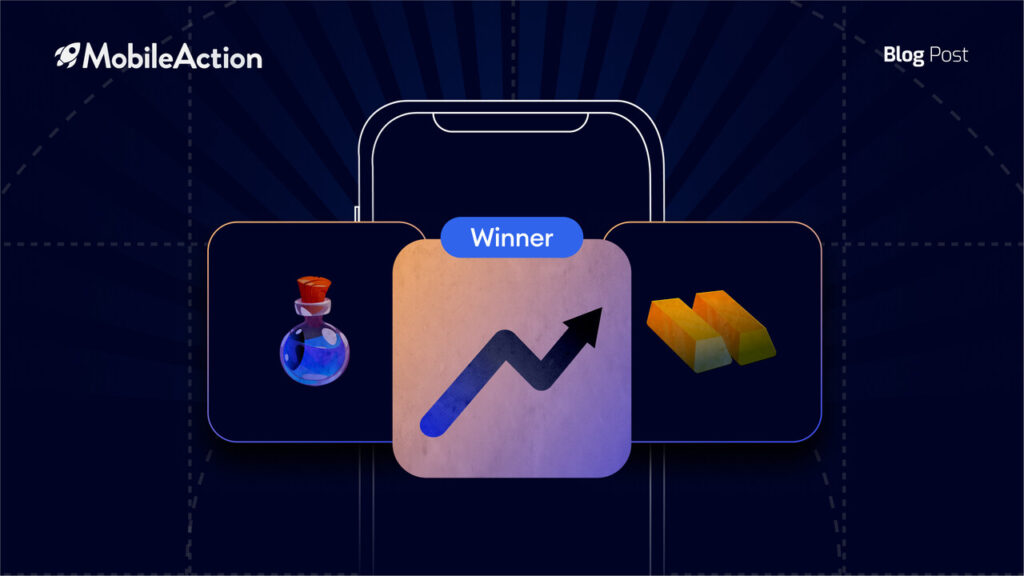As previously mentioned in MobileAction Blogs, due to the increasing competition in the mobile app industry, app owners prefer to employ unique strategies to differentiate their apps, stand out in this crowded market of mobile apps, and stay one step ahead of the competition. Some of these strategies were user onboarding, ad creatives, ASO, personalization, and monetization.
- User Onboarding Best Practices: 10 Tips for Making a Great First Impression
- Winning Ad Creative Strategies for Mobile Apps
- ASO + AI: The Formula Behind Remini’s Remarkable Climb in Rankings
- Your App, Their Way: Mobile App Personalization Explained
- Mobile App Monetization: Top 13 Ways to Maximize Your Revenue
In addition to these features, there is another very simple but effective way to increase visibility in app stores and get noticed more easily: Optimized metadata. And this is the point where the significance of app titles comes into play…
In this comprehensive guide, we’ll discover the world of app titles by analyzing their importance in the realm of App Store Optimization (ASO), uncovering some of the best practices for crafting effective titles, and examining real-life examples that have mastered the art of grabbing attention. By the time we reach the end, you’ll not only grasp the immense impact of a well-crafted app title but also discover some of the tools to make yourself visible to your target audience.
Understanding App Titles
Before we dive into the strategies and techniques that can transform an app title from mere words to a powerful magnet for users, it’s essential to understand the fundamental role that app titles play. An app title isn’t just a random collection of characters; it serves as the initial gateway into your app’s world.
Think of the app title as a carefully distilled essence of your app’s purpose, functionality, and uniqueness. In a few concise words, it should encapsulate what your app does, who it’s for, and why it’s worth exploring. This may seem like a tall order, given the limited character count typically allowed for app titles, but that’s where the challenge and artistry come into play.
An effective app title is more than a label; it’s a promise. It sets the user’s expectations for what they will experience after downloading your app. Therefore, it’s crucial that your app title aligns seamlessly with the actual user experience your app provides. Misleading titles might grab attention initially, but they can lead to frustration, negative reviews, and uninstallations in the long run.
Additionally, an app title serves as a first point of contact with potential users. It’s the very first thing they see when browsing through app stores or search results. In this age of fleeting attention spans, a well-crafted title can be the difference between a user scrolling past your app and clicking to learn more. This is where the power of a captivating app title comes into play – it’s your chance to make an unforgettable first impression.
You need an effective app title to persuade someone who sees your app to download that app, and you need AI-powered smart ASO tools developed by MobileAction for your app title to appear higher in app stores. To learn how we can do this, you can request a demo now and learn from our experts how MobileAction can boost your app’s visibility!
App Titles and App Store Optimization (ASO)
App Store Optimization (ASO) is the secret sauce behind the visibility and success of many apps. It’s the process of optimizing various elements of your app’s listing on app stores to improve its discoverability and organic downloads. Among these elements, the app title holds a position of paramount importance.
When users search for an app, they often use specific keywords or phrases related to their needs. An optimized app title with relevant keywords can significantly boost your app’s chances of appearing in search results. However, it’s essential to strike a balance between keyword optimization and maintaining a title that’s engaging and user-friendly.
Furthermore, ASO isn’t limited to the app stores themselves. App titles can also impact your app’s visibility in external search engines and on app review sites. By selecting keywords strategically and aligning them with user intent, you can enhance your app’s presence across various platforms.
To boost your ASO while saving you valuable time and money at the same time, we provide a variety of solutions at MobileAction to increase the number of app downloads. One of them is the potent ASO Intelligence tool we have created.
ASO Intelligence is a complete intelligence tool specifically developed to take your ASO game to the next level. With its features such as Keyword Gap, Keyword Tracking, Keyword Spy, ASO Report, and many more, you can gain access to all the essentials to maximize your app’s visibility and conversion. To unlock the full potential of ASO Intelligence, schedule a demo now and gain insights from our experts!
Best Practices for Crafting Compelling App Titles
Crafting an effective app title is an art that requires a blend of creativity, strategic thinking, and a deep understanding of your target audience. To help you create app titles that not only capture attention but also resonate with users, here are some best practices to consider:
Clarity and Relevance: Your app title should clearly convey what your app does and who it’s for. Avoid vague or overly abstract titles that leave users guessing. Instead, opt for titles that provide a glimpse into the app’s purpose or unique selling points.
Strategic Keyword Placement: While creativity is crucial, don’t overlook the importance of keywords. Incorporate relevant keywords naturally into your title to enhance discoverability. However, avoid keyword stuffing, as it can make the title sound awkward and reduce its appeal.
Length and Readability: Aim for a title that’s concise yet informative. Long titles can get cut off, especially on mobile devices, leading to confusion. Keep it within the character limit prescribed by app stores while maintaining readability.
Localization: If your app targets a global audience, consider localization. Translating your app title and ensuring it resonates culturally can greatly improve its effectiveness in different regions.
How to Stand Out With an App Title
You should aim for an original title that hasn’t been employed by other apps in the app stores. However, it’s crucial to go beyond a basic app store search to prevent creating a duplicate app. While you desire the name to be unmistakable, it should also maintain simplicity in terms of spelling and pronunciation. To create a distinctive name that effectively conveys its value, consider employing one or a blend of these methods:
- Brand name + single keyword: Google Maps, Prime Video
- Brand name + keywords: Canva: Design, Photo & Video, Booking.com: Hotels & Travel
- Compound words to make a brand name: Facebook, WhatsApp, Dropbox
- Made up words including part of a relevant keyword: Airbnb, Letterboxd
Real-World Examples of Stellar App Titles
Let’s bring theory into practice by exploring real-world examples of apps that have mastered the art of crafting compelling titles:
Headspace – Mindful Meditation: The title immediately conveys the app’s purpose – offering meditation and mindfulness-related content. It’s concise, clear, and resonates with users seeking relaxation.
Duolingo – Language Lessons: Duolingo’s title leaves no room for confusion. It tells users exactly what the app offers – free language learning.
Tinder – Dating, Chat & Friends: In just three words, Tinder’s title captures the essence of the app’s user journey. It hooks users with the promise of dating, chatting, and friendship, encapsulating the app’s core features.
Shazam – Music Discovery: Shazam’s title is both an instruction and a promise. Users instantly know they can identify songs and access lyrics quickly. It’s a perfect blend of clarity and curiosity.
By dissecting these examples, we can see how effective app titles combine clarity, relevance, and creativity to create a powerful first impression. As you craft your app title, draw inspiration from these success stories while tailoring your approach to your app’s unique identity.




